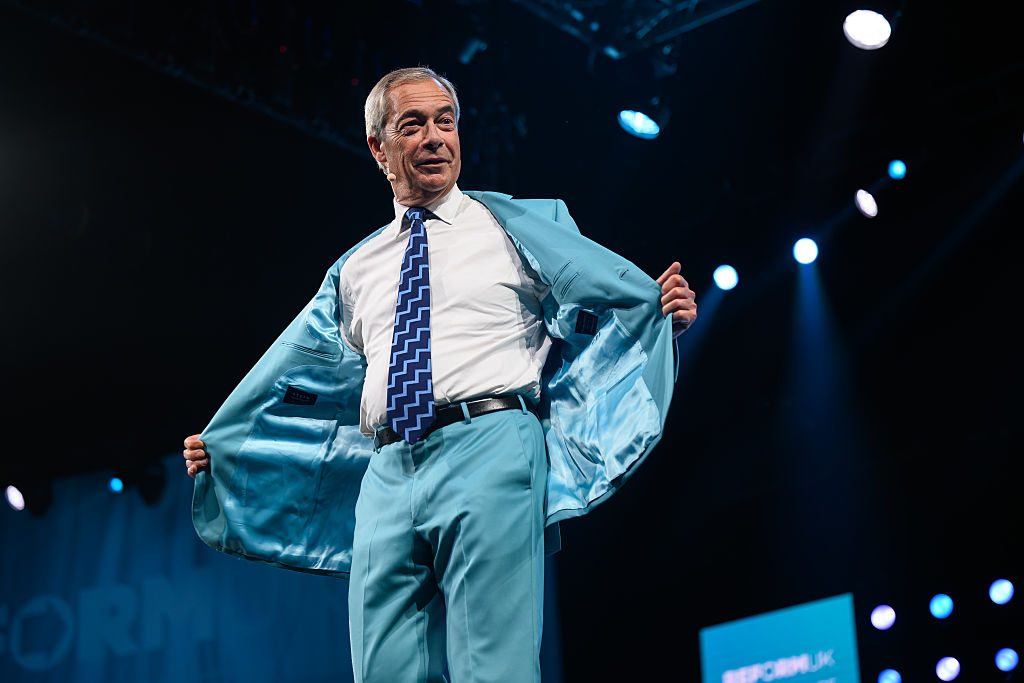There’s a line about Nigel Farage that the Blue Labour guru Lord Glasman likes to use. At the Labour Party conference last month, when I asked the peer if he was tempted to lend his support to Reform UK’s insurgency in working-class, former Labour heartlands, he told me that the turquoise army’s frontman was “a saloon-bar Thatcherite”.
This is an attack line Labour has repeatedly articulated in largely vain attempts to discredit the party which has now led in more than 100 consecutive independent polls. Led By Donkeys, the Centrist Dad archetype’s campaign group of choice, has advertised Farage’s support for Trussonomics as evidence of the Reform leader’s dangerous ideological combination of free-market, small-state ideological rigidity and fiscal incontinence.
But all this is changing. While Reform’s 2024 manifesto contained £90 billion in unfunded tax cuts, plus another £50 billion in spending increases, the party has now committed to front-loading Budget savings before implementing tax reductions, promising a fully costed manifesto before the next election.
What’s more, contrary to many Reform figures’ political roots on the Brexiteer, libertarian Right, Farage is now pivoting in another direction, towards a more big-state, interventionist economic model. He has expressed support for industrial policy, the nationalisation of the steel industry, national ownership of utilities, the reopening of the coal mines (with a Government stake in their operations), and a welfarist turn with opposition to the winter fuel and two-child benefit cuts. He’s even expressed his admiration for fellow anti-establishment outsider Arthur Scargill. Zia Yusuf, the party’s head of policy, has posted approvingly about China’s success in delivering major infrastructure projects at breakneck speed. These are not the pronouncements of Hayekian or Friedmanite dogmatists.
It’s this latter trend line, of Reform’s steady Leftward tilt, that has led Conservative politicians and columnists to accuse Farage of being “a socialist”. Matthew Syed, the former UK table tennis champion and political commentator, used his time up at the Conservative conference pulpit to link Farage’s “socialism” to his advocacy for high deficits and spiralling debt. If these are the criteria for a socialist political economy, then that would make Ronald Reagan and Donald Trump the most Left-wing politicians the US has seen for several decades.
While this is patently absurd, the intended audience for these claims isn’t the broader public, for whom abstract ideological debates hold little resonance. Instead, politicians are speaking to the true-blue Tory faithful, fully aware that many will be looking at polling and considering jumping ship.
Farage’s policy evolution should be viewed in this context. While he is now in the ascendancy, as an election looms (and if the poll lead holds), he’ll find himself under increasing pressure to set out his party’s nitty-gritty detail, and go beyond merely embodying pie-and-pint patriotism and common-sense politics.
And so he has landed in the territory of the median British voter, and in the land of continental populist comrades including Victor Orbán, Poland’s Law and Justice Party, and Marine Le Pen’s Rassemblement National. Broadly speaking, this positioning can be summed up as Right on culture and Left on economics. The public doesn’t want spendthrift profligacy, to be sure. But they do expect a protective, active state, one that shields a tired populace from the headwinds of a half-century of liberal globalisation. That is the direction in which a shape-shifting Farage is taking his Reform roadshow.











Join the discussion
Join like minded readers that support our journalism by becoming a paid subscriber
To join the discussion in the comments, become a paid subscriber.
Join like minded readers that support our journalism, read unlimited articles and enjoy other subscriber-only benefits.
Subscribe